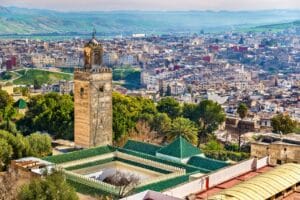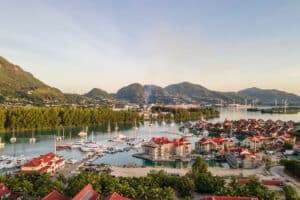Africa is an incredible and vast continent. If you’re not sure where to start, start with safety. According to World Population Review, the safest countries in Africa are:
- Mauritius
- Botswana
- Sierra Leone
- Ghana
- Senegal
- Madagascar
- Namibia
- Gambia
- Zambia
- Liberia
- Malawi
- Morocco
These 12 countries are the safest on the world’s second-largest continent (over 30 million km2), right after Asia (about 44.6 million km2). Africa is far bigger than North America. You could even fit Europe into it almost three times over.
The continent of Africa is well worth visiting, and not only because highway signs warn you about giraffes and elephants. This unique continent may just blow your mind with its variety of stunning landscapes, wildlife, languages, and diverse cultural heritage.
How We Chose Africa’s Safest Countries
- The Global Peace Index (GPI), created by the Institute for Economics and Peace (IEP), gives us an account of each country’s safety according to 23 quantitative and qualitative indicators. Lower scores indicate more safety for travelers.
- The Global Organized Crime Index (GOCI) is developed by INTERPOL, the United States government, and the European Union. On a scale of 1 to 10, lower numbers indicate a safer territory.
- The Women, Peace, and Security Index, developed by the Georgetown Institute, measures safety for women around the world. Scored between 0 to 1, the safest possible score would be 1—so the higher the number, the safer it is for women.
- The Numbeo site receives contributions from people who have actually visited or lived in that destination. It collates their impressions on various safety-related factors. Scored between 0 and 100, lower scores indicate safer places.
- The Global Happiness Indexis curated by WorldPopulationReview. This scale ranges from 1 to 10. The higher the score, the happier the people, which often correlates with safer, more welcoming environments for visitors.
All of these countries have incredible sights and experiences to delight you. Here are the top countries to visit and explore.
1. Mauritius

If safety were your only consideration in Africa, this would be the country of choice. Mauritius is Africa’s safest country with a 1.55 on the Global Peace Index. That makes it the world’s 23rd safest country out of 163 countries, far safer than the US and the United Kingdom—even safer than Sweden and Norway.
It scores 4.37 on the Organized Crime Index, making it a very low organized crime area compared to other countries. What’s more, organized crime is decreasing further. It dropped by 0.15 from the previous year, indicating that Mauritius is becoming even safer.
Mauritius ranks 93rd out of 177 countries on the Women, Peace, and Security Index. It’s around the world average, comparable with Brazil. This score suggests that sensible precautions would be wise for women travelers, such as walking in groups if out at night or in isolated areas. Crowd wisdom from Numbeo concurs. It indicates that crime in Mauritius is low and people consider it safe to walk around alone during the day, but it’s best to be in groups at night.
The country is the most densely populated in Africa, so if you’re looking for seclusion, keep looking down our list! At about 2,000 km2, it’s about 10x the size of Washington, and it’s home to about 1.3 million people.
People here are moderately happy, with a Global Happiness Index score of 5.82, putting the country at number 70 out of 143 listed countries. However, you will most likely be overjoyed if you choose this vibrant, tropical paradise as your holiday getaway where you can enjoy everything from out-of-a-postcard coasts to lush mountains.
Just note that November to April is cyclone season and reefs may pose maritime challenges.
Oh, and cigarette papers are illegal.
Things to see and do in Mauritius:
- Black River Gorges National Park: One of the best hikes you’ll ever do
- Chamarel Waterfall: One of those iconic attractions that help you make the most of your time in the country
2. Botswana

Botswana is the second safest country in Africa with a Global Peace Index score of 1.76.
The US Travel Advisory urges travelers to exercise increased caution at the moment, though most crimes are opportunistic thefts and burglaries. So perhaps leave your Gucci in your home country? The Global Organized Crime Index tells us that Botswana is low on organized crime, with a score of 4.35. This is much lower than the US and lower than much of Europe.
According to Numbeo, people feel a risk of things being stolen. This correlates with a happiness score of 3.4 and a position of 137 out of 143 on the World Happiness Index. Despite significant wealth from diamonds and a robust economy that includes a focus on tourism, income inequality is extreme. We recommend keeping valuables locked up or out of sight, which is normal in most big cities.
Despite general discontent, Botswana feels safe in many regards, particularly when it comes to insults or attacks motivated by gender, race, or religion. And with a score of 0.66 on the Women, Peace, and Security index, which is about the global average, women can travel relatively freely here.
It’s illegal to possess or attempt to export anything that could be considered an animal trophy. Africa is battling poachers and they will not appreciate your dead animal souvenirs. That means ANY animal parts, treated or otherwise, such as horns, ivory, and teeth, skin, hair, and feathers shouldn’t be exported. The same goes for eggs.
Finally, Botswana floods in the rainy season, which spans November to March. You might need a 4×4 to get around and, preferably, a bonafide local professional driver to drive it.
Things to see and do in Botswana:
- Moremi Game Reserve: The African Travel and Tourism Association voted this the “best game reserve in Africa”
- Chobe National Park: You’ll have to pinch yourself to confirm that you’re really there
3. Sierra Leone
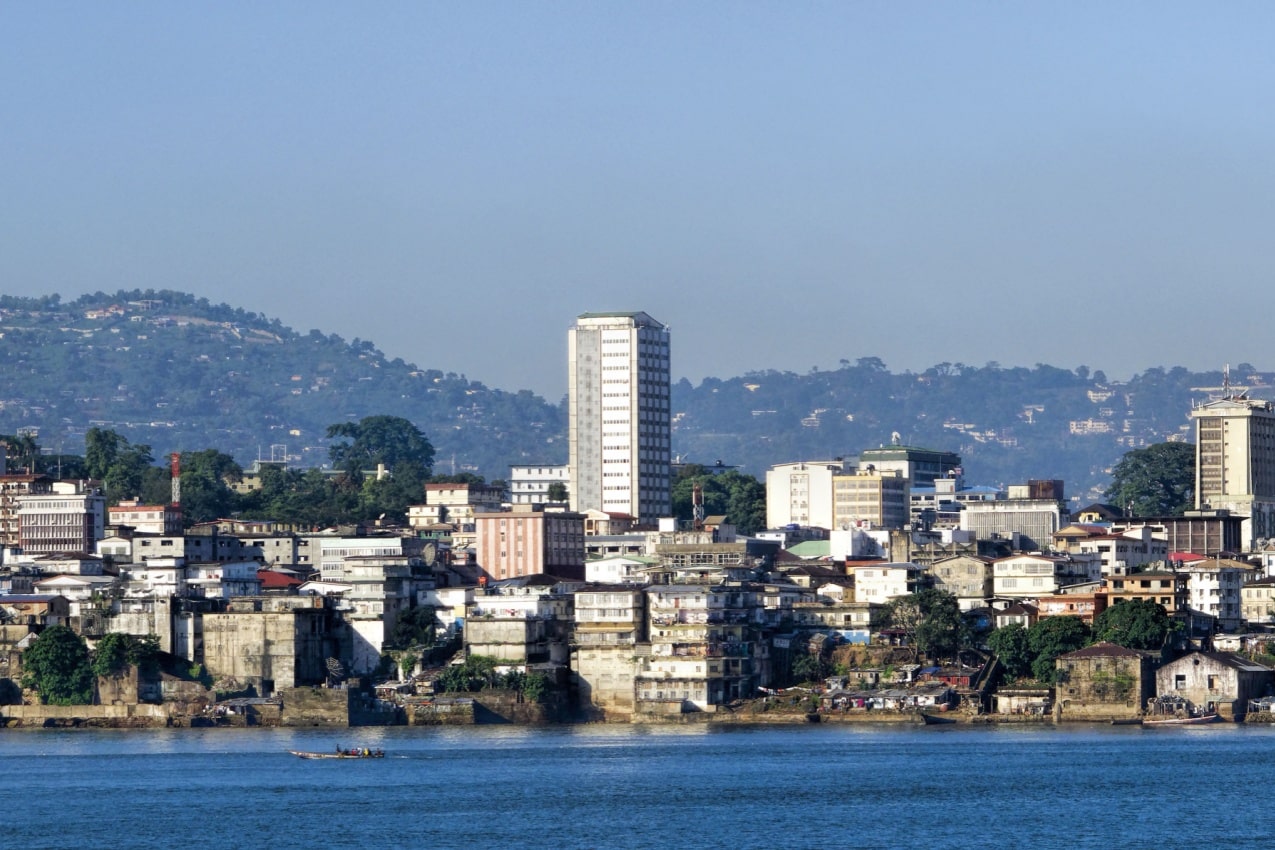
The stunningly beautiful Sierra Leone has a Global Peace Index score of 1.79, which is not far off Botswana and safer than Uruguay, South America’s safest country.
It scores 4.95 on the Organized Crime Index, down a massive 0.45 points, while the resilience to crime score of 4 is up almost .6, showing significant improvement. The consensus from Numbeo seems to be that it would be better to travel in groups here. As we have seen before, this correlates with perceived general unhappiness as the country ranks 140 with a score of 3.25 on the Global Happiness Index. This could be attributed in part to the fact that despite making a lot of economic and governance progress in recent years, there remains widespread poverty.
With 0.54 on the Women, Peace, and Security Index, it’s edging toward the less safe places for women to travel alone so it would be advisable to travel in groups and stick to touristic areas.
The US State Department recommends increased caution at the moment. Crime can be an issue, but this is mostly due to pickpockets and opportunists. As in any big city, be careful in Freetown, the beautiful and varied capital. Police do their best to deal with incidents, but they lack the resources.
The US travel advisory also mentions civil unrest surrounding elections and governance. Remember that even peaceful protests can be unpredictable, so it’s best to steer clear of crowds and demos.
Aside from that, be careful in the water. The beautiful Sierra Leone coast has strong ocean currents combined with zero lifeguards. Strong swimmers may wish to enjoy the ocean. Everyone else can loll around enjoying the sun-kissed beaches.
Things to see and do in Sierra Leone:
- Tacugama Chimpanzee Sanctuary: An all-encompassing sanctuary, educational center, and retreat. They had me at “chimpanzee.”
- Bureh Beach: 4 km of golden sand surrounded by forest
4. Ghana

Ghana has a Global Peace Index score of 1.8, putting it just behind Uruguay. It’s one of the most peaceful countries in Africa and the number one peaceful country in the west of Africa. This is partly thanks to political reforms. It has been democratic and stably so since the early 90s.
If there are demonstrations, they will probably be in the capital, Accra. The police and demonstrators typically do a good job of maintaining peace, but they can disrupt travel.
On the Organized Crime Index, Ghana scores 5.8, which is about midway on the scale and it’s down 0.21, indicating that the country may be getting safer. With 0.65 on the Women, Peace, and Security Index, Ghana is about average globally in terms of safety for women travelers.
According to Numbeo, Ghana feels very safe. Contributors’ experiences point toward very low risks of being involved in any crime. People also felt it was very safe to walk around alone during the day and—while caution is always advisable—that it was not too bad walking alone at night, either.
With 4.29 on the Global Happiness Index, this is the 120th happiest nation. While this isn’t the highest, many people will be pleased to see you. The Ghanaian government has been actively promoting tourism, so you may well find this country welcoming.
Don’t wear those comfortable, useful combat trousers, though. Military or camouflage clothing is not just frowned upon; it’s illegal.
Things to see and do in Ghana:
- Elmina Castle: If you’ve had enough of the wildlife (seriously?), how about this world heritage site with the oldest castle in sub-Saharan Africa?
- Mole National Park: If you’ve had enough of 15th century castles, how about Ghana’s largest protected area?
5. Senegal

Senegal is right behind Ghana on the Global Peace Index with a score of 1.82. It has a score of 5.52 on the Organized Crime Index, which is about average. It gets 0.61 on the Women, Peace, and Security Index, so, globally, it’s also about average for safety for female travelers.
It’s the 99th happiest country with a score of 4.97 on the Global Happiness Index, making it one of the places in Africa with the happiest people.
Political demonstrations are likely to occur around the presidential elections in early 2024. Avoid politics, although you can rest assured that Senegal is among the most politically stable African countries. Nonetheless, stick to the incredible variety of natural and cultural delights, including seven UNESCO World Heritage Sites.
Known as the Gateway to Africa, it has an incredibly diverse environment that will delight nature lovers looking for flora and fauna.
Senegal’s official language is French, because it was a former French colony, gaining independence in 1960.
Things to see and do in Senegal:
- Ngor Island Surf Camp: A paradisiacal island for those serious about fun in the water
- Djoudj National Bird Sanctuary: This, one of seven UNESCO World Heritage sites in Senegal, is considered to have outstanding universal value
6. Madagascar

Madagascar, the fifth-largest island in the world, gets a 1.85 on the Global Peace Index, on par with countries like Argentina and Moldova.
With a Women, Peace, and Security Index score of 0.5, however, female travelers should exercise caution when traveling here. Numbeo confirms that despite the allure of the talking animals, it would be wise to travel in groups.
This correlates with a Global Happiness Index score of 4.23, making it 123rd on the happy list. As is often the case on the African continent, Madagascar has considerable natural resources, but high rates of poverty. Wealth and income inequality can cause an increase in dissatisfaction and crime figures.
On the plus side, you won’t need to worry too much about drug dealing compared to many other countries and there’s a low risk of anyone wanting to attack people due to skin color, ethnic origin, gender, or religion. Organized crime is at 5.58 on the Organized Crime Index, making it lower than countries like the United Kingdom, France, and the United States.
To maximize your safety, it’s advisable to make the most of organized visits in Madagascar’s national parks and reserves. The island, about 300 miles east of southern Africa, has a unique ecosystem. It has an extraordinary number of species that don’t exist anywhere else on the planet. Lemurs. Chameleons. Incredible flowers and plants. The kind of things that might inspire an animated movie series.
In some parts of Madagascar, you’ll need to be aware of “fady,” which are like local things that are forbidden. It might be food. It might be clothing styles. In remote areas, a local guide will help you do as the locals do.
Things to see and do in Madagascar:
- Isalo National Park: A great introduction to Madagascar’s unique biodiversity
- Lemurs’ Park: for those who like their biodiversity with more lemurs
7. Namibia

Namibia is right after Madagascar on the Global Peace Index, with a score just shy of 1.86. It gets a 0.6 on the Women, Peace, and Security Index, which is in the average range globally. According to Numbeo contributors, it feels pretty safe walking around Namibia during the day. It looks like a good idea to have someone with you while walking at night though.
Still, organized crime is low, with a score of just 4.3 (and falling) on the Organized Crime Index.
Happiness in Namibia is scored at 4.83, which gives it a ranking of 106 on the Global Happiness Index. Despite challenges, the people are friendly. Also, English is the official language, which could help you get around. To enhance your stay, you might want to try pleasing the locals by brushing up on your Oshiwambo, German, or Afrikaans.
Namibia is one of those places that will cause your jaw to drop every single day. It’s above South Africa and west of Botswana. It has an underground lake, the world’s oldest desert, and the world’s tallest sand dune. It’s the place to go if you want to get away from it all.
No entire country is really off-the-beaten-track, but Namibia gets overlooked compared to neighboring African countries. That means it’s not packed with tourists and you may feel like you’ve got some of these beautiful places to yourself!
Things to see and do in Namibia:
- Deadvlei: 900-year-old trees against bleached-white salt pans and clear, blue sky: a photographer’s paradise
- Etosha: Africa’s biggest salt pan; also, flamingos
8. The Gambia
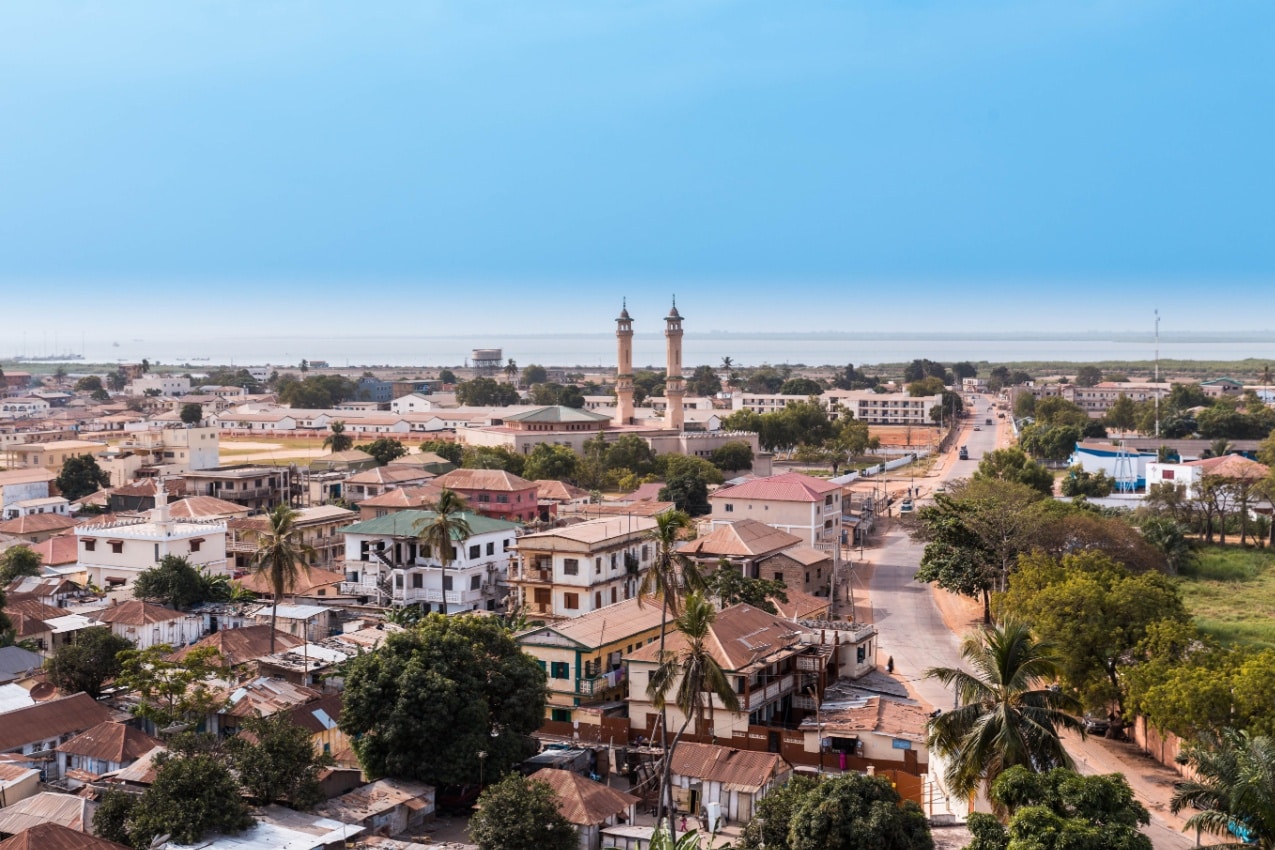
The Gambia has 1.88 on the Global Peace Index, putting it just ahead of Greece. It’s the smallest country in mainland Africa, surrounded by Senegal. It’s called The Gambia to differentiate it from Zambia.
It has a pretty low score on the Organized Crime Index. Its 4.53 score is down by 0.29, showing that The Gambia got safer for visitors. Female visitors should exercise caution as it has a score of 0.57 on the Women, Peace, and Security Index, ranking The Gambia at 135 out of 177 countries.
Numbeo stats suggest that visitors should take care with their valuables and not leave things unattended, but that the risk of actually being confronted with a physical crime is not very high.
Gambia’s Global Happiness Index score is 4.49, which is about the average for Africa at the moment. The average in 2023 was 4.43. The three million or so locals are typically friendly, though you may need to be polite but (very) firm regarding unwanted offers of help. Long, amiable conversations may lead to attempts to part you from your cash!
Stick to official tours and guides for a hassle-free time. Check in with official, local guides for the best ways to enjoy The Gambia in your vicinity.
Things to see and do in The Gambia:
- Senegambia Craft Market: Authentic Senegambian craft; they expect you to haggle
- Bird Watching: Less popular than cuddling a crocodile, but ostensibly safer
9. Zambia

Zambia has achieved 1.9 on the Global Peace Index, putting it above Cyprus, France, and Paraguay. An Organized Crime Index score of 4.73 shows that organized crime doesn’t have too much of a hold here. And that score is down 0.19 since the last survey.
The country scores 0.55 on the Women, Peace, and Security index, which is at the lower end of the scale, so female travelers would be advised to avoid traveling alone. According to Numbeo, people have found Zambia to be very safe, with no serious risks in any respect except corruption and bribery. They found it almost totally safe during the day and okay to walk around alone at night.
Happiness levels are not typically great, with a Global Happiness Index score of 3.5. Demonstrations tend to take place in urban areas, particularly Lusaka. It’s best to avoid these as they can be unpredictable and they may not take kindly to people trying to cross protester roadblocks.
The wildlife is seriously wild, so take care whether you are driving, a passenger, or are on foot.
Visiting Victoria Falls is an incredible way to spend your time if you’re in—or anywhere near—Zambia. Whether you are near, in, or on the water, use official, organized tours and companies to maximize your safety around these incredible waterfalls.
Things to see and do in Zambia:
- Victoria Falls / Mosi-oa-Tunya: Awe-inspiring waterfalls on the Zambezi river
- South Luangwa National Park: 9050 square kilometers of stunning park full of plains, waterways, and wildlife
10. Liberia
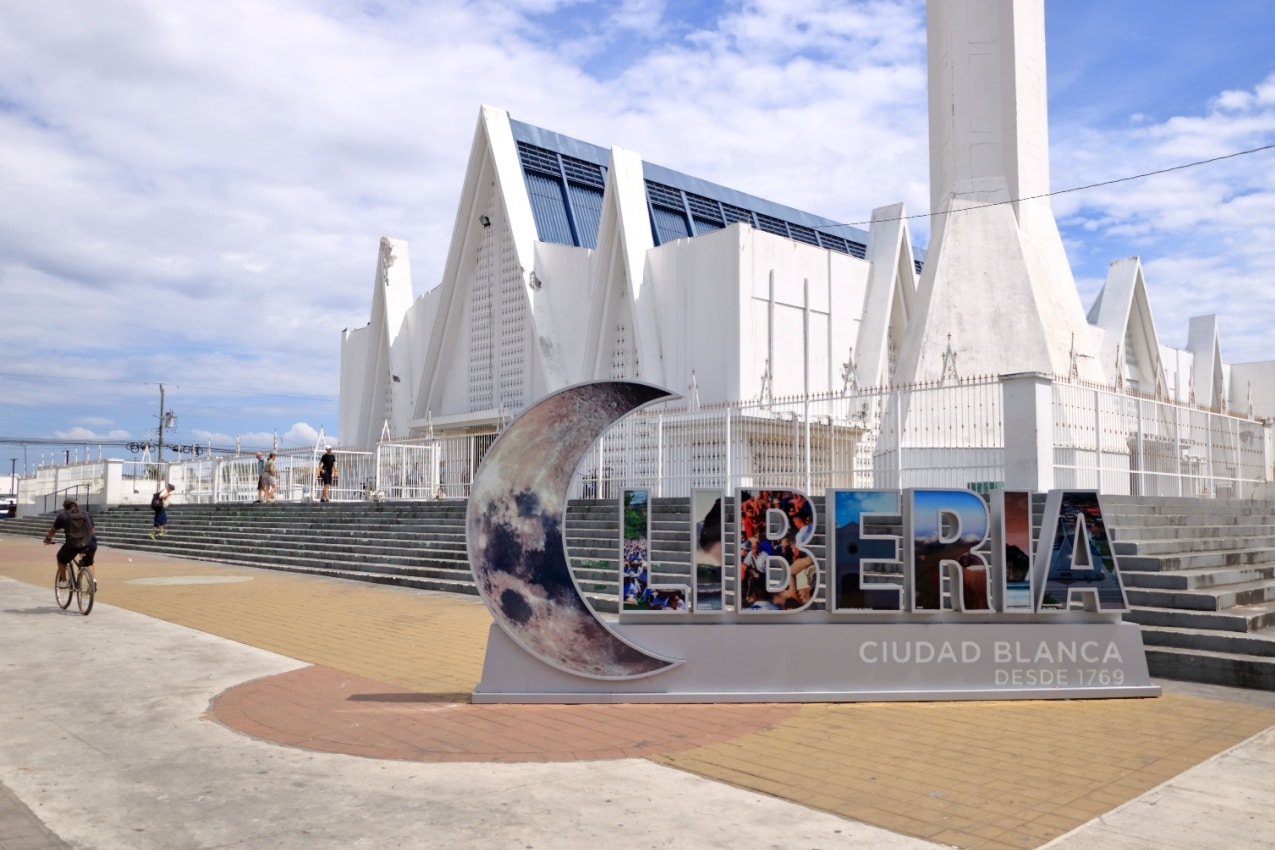
Liberia means “Land of the Free” in Latin, and when you get into it, it makes sense. It’s the only Black state in Africa that was never under colonial rule; it’s the oldest republic in Africa; and, it was the first African country to have a female President: Ellen Johnson Sirleaf, who won the Nobel Prize in 2011. In 1847, it was also the first African nation to declare itself independent from the US.
The country has 1.94 on the Global Peace Index, which puts it in position 70 out of 163 in the world. Plus, an Organized Crime Index score of 5.5 means it’s not exactly a hot-spot for organized crime!
However, there is a pretty high risk of crime here, in general, including petty crime like pickpocketing. Not many people have contributed to Numbeo’s safety data on Liberia, but they suggest it’s far safer and more advisable to travel around in groups of two or more.
A rating of 0.5 on the Women, Peace, and Security index puts Liberia at the low end for female safety. We can infer that women would be well advised to avoid solo travel, especially at night.
With scores like these, it’s probably not surprising to discover that Liberians—despite the awesome meaning of their country—are not the happiest. They score just 4.27, putting the country at number 121 in the Global Happiness Index’s list of 143 countries.
Liberia is great if you love nature and being outdoors: it has incredible beaches, lush rainforests, and plentiful wildlife for everyone.
Things to see and do in Liberia:
- Mount Nimba: Great hiking land and home of Africa’s largest butterfly
- Sapo National Park: A sanctuary for all things wild
11. Malawi

With 1.97 on the Global Peace Index, Malawi sits above the United Arab Emirates, Jamaica, and Nepal. It has an Organized Crime Index score of 4.48, which is very low compared to much of the continent.
Women should note that Malawi scores 0.52 on the Women, Peace, and Security Index, so it’s at the 146th spot out of 177 countries. Some caution will be advisable. Numbeo wisdom suggests that it’s safe to travel alone during the day.
The country has a score of 3.42 on the Global Happiness Index. But despite poverty and related daily challenges, the people are widely considered friendly. Tourism is a big deal here and it is often tagged “the warm heart of Africa.” And, as in other African destinations, you should expect incredible natural scenery and wildlife.
Stay safe when traveling by ensuring you have enough fuel. Fill up regularly in case there are shortages along your route.
Things to see and do in Malawi:
- Lake Malawi: UNESCO considers this lake to have “outstanding universal value” and you will, too
- Mvuu Camp: Enjoy game drives and bush walks with this incredible camp as your base
12. Morocco

In the northwest corner of Africa, Morocco has 2.02 on the Global Peace Index, putting it at position 84. With a score of 4.8 on the Global Organized Crime Index, we can see that Morocco doesn’t have a massive organized crime problem compared to other countries.
Morocco has a Women, Peace, and Security Index score of 0.63, which puts it in the mid-range on a global scale. Numbeo stats compiled from the responses of about 750 contributors suggest that crime in Morocco is very low and it’s safe to walk around alone at night.
Are the people happy? Morocco scores 4.8 on the Global Happiness Index, which is nowhere near as happy as in neighboring Algeria, which has 5.36, but is nonetheless happier than several of the safest countries in Africa on this list.
Along with Spain and France, it’s one of the few countries to have coasts on the Atlantic and the Mediterranean. It has incredible culture, history, and heritage, as well as beautiful landscapes, architecture, and cuisine.
Jet skiing, swimming, and boating are popular in Morocco. Just be sure to stay clear of the border between Morocco and Algeria—it’s closed and patrolled.
Things to see and do in Morocco:
- Madrasa Ben Youssef: Fill your inspiration cup with Moroccan architecture, culture, and art
- Ouzoud Falls: Go with an official guide to get the most from these exquisite waterfalls
General Safety Considerations in Africa
This massive continent is the second most-populous, where again it comes second only to Asia. One of the places it comes top in the world, unfortunately, is poverty.
Poverty, along with the fact that some African countries have internal conflicts and/or are ruled by extremists, contributes to crime in some regions.
To have the best time in Africa:
Stay Alert
Be cautious in big cities and places where tourists may get distracted, like on public transport or in markets. Be respectful of the locals and don’t flash jewelry, smartphones, and other valuables.
Drive Carefully
Road conditions vary, of course, but there is a tendency toward poorly maintained roads and dangerous driving, especially in rural or more remote areas. It’s advisable to plan your route ahead. Make sure you fill up the tank and check the local road safety and travel information before any journey.
There may be flooding, surface damage, or no lighting. In some places, you may be treated to erratic maneuvers, especially from daredevil motorbikers.
Where road conditions are good, watch out for wildlife. Those giraffe and elephant signs are for real!
Stick to the Path
While African countries in general have made a lot of political progress, curbing unrest and using fairer, democratic systems, you may still encounter protests. Avoid them as well as any large public gatherings.
Drink Bottled Water
Buy bottled water for drinking. Tap is fine for everything else, including cooking with it or boiling it for tea and coffee.
Be LGBT+ Conscious
Many people in African countries are conservative, so dressing modestly will avoid unwanted attention. Additionally, many are intolerant to same-sex relationships. Same-sex sexual acts, relationships, PDA, and even cross-dressing may well be illegal with severe fines or prison sentences. Even if not, they could garner you some unwanted attention.
Respect Local Traditions and Religions
Many countries in Africa are Muslim. Avoid attracting unwanted attention by behaving and dressing conservatively. Especially during the Muslim holy month of Ramadan, you would be advised not to publicly drink or eat, play loud music, or swear. Drinking in the street may be illegal. Forget about drugs.
Expect some disruption in terms of shops being shut during this period.
Stick to Photographing Tourist Spots
Be careful about who you photograph. Not everyone likes it.
You should also avoid pointing your smartphone or camera at anything vaguely military-looking. It’s a good way to lose your phone and potentially your freedom.
Extreme Weather
There are earthquakes in African countries. Pay attention to all local advice on these natural phenomena.
Flooding is more common. Heavy rain can make driving (more) dangerous. Again, keep an eye on local information before traveling, whether by car or on foot.
Safest African Countries Recap
Africa is an amazing continent with incredible biodiversity. Get the most from it by being considerate and alert to cultural differences.
By exercising normal caution and respecting the advice of local guides, you will have an incredible time in any of these twelve of the safest countries in Africa.
